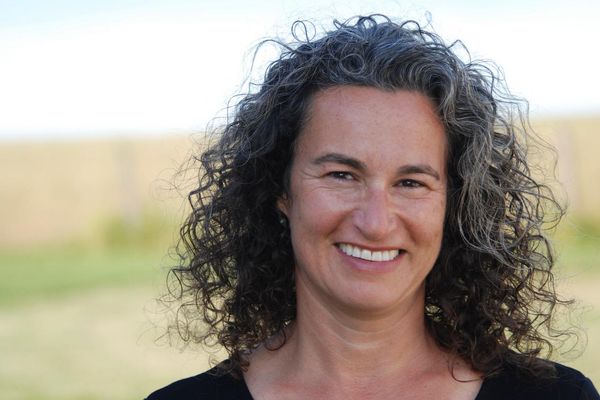Q:
I'm 46 years old and going through perimenopause. I have irregular periods and water retention. My breasts always feel swollen; not sore—just enlarged. Is this due to water retention and lack of progesterone? Besides using progesterone cream, is there a natural way to help with this breast enlargement?
A:
Swollen and tender breasts are often a sign of high levels of estrogen, which is common in the perimenopausal period. It's also common when you're pregnant and just before your period (which is why your breasts are often tender then). One study found about a third of women experienced tender breasts in early perimenopause. The good news is that this is often the first menopausal symptom to disappear as you get closer to the menopause itself, which, as you may know, is 12 months from the date of your last period.
Because high levels of estrogen are often behind the breast swelling, you're right to think that progesterone—which can help balance your hormonal levels and prevent estrogen from overstimulating breast tissue—might be a possible treatment. There are numerous options available, including natural progesterone cream that can be applied to the skin or vaginally (available over the counter or by prescription), oral progesterone, and progesterone-only birth control pills (or combination birth control pills).
One study of 40 premenopausal women found their premenstrual breast pain significantly improved when they used 4 grams of a vaginal cream containing 2.5 percent natural progesterone from the 19th to the 25th day of their cycle for six months, compared to women using a placebo cream. Although oral progesterone might initially increase breast tenderness, that quickly disappears. Generally, if you're still menstruating your health care professional will likely prescribe progesterone just during part of your cycle, usually for about six months.
You can also talk to your health care professional about combination estrogen/progesterone therapy. There's evidence that it may relieve breast tenderness in women who have breast tenderness prior to starting hormone therapy; paradoxically, however, it may increase breast tenderness in women who didn't have it to begin with. However, if you have a family history of breast cancer or other known risk factors for breast cancer, your health care professional may not prescribe hormone replacement therapy.
If you don't want to use hormone therapy, you might consider evening primrose oil. This oil is rich in omega-3 fatty acids, which can reduce the inflammation associated with breast swelling and tenderness. Just follow directions on the bottle. Other supplements that may help are vitamin E, 400 IU a day, and a good quality vitamin B supplement.
- The Surprising Signs of Perimenopause ›
- Why Don't Women Want to Talk About Menopause? - HealthyWomen ›
- From Hot Flashes to Night Sweats, a Rundown of Vasomotor Symptoms During Menopause - HealthyWomen ›
- Sore Breasts - HealthyWomen ›
- From Hot Flashes to Night Sweats, a Rundown of Vasomotor Symptoms During Menopause - HealthyWomen ›
- 12 Reasons You're Experiencing Breast Pain - HealthyWomen ›
- Breast Pain and Menopause - HealthyWomen ›
- Could It Be the Transition to Menopause? - HealthyWomen ›
- Menopause Breast Pain and Tenderness: Causes and Treatment ›
- Menopause Symptoms | Breast Tenderness | My Menopause Centre ›
- Breast Changes During Menopause: What to Expect ›
- Managing Menopause, Part 1: Vasomotor Symptoms ›
- Vasomotor Symptoms and Menopause: Findings from the Study of ... ›
- Vasomotor symptoms of menopause: Causes, risk factors, and more ›







